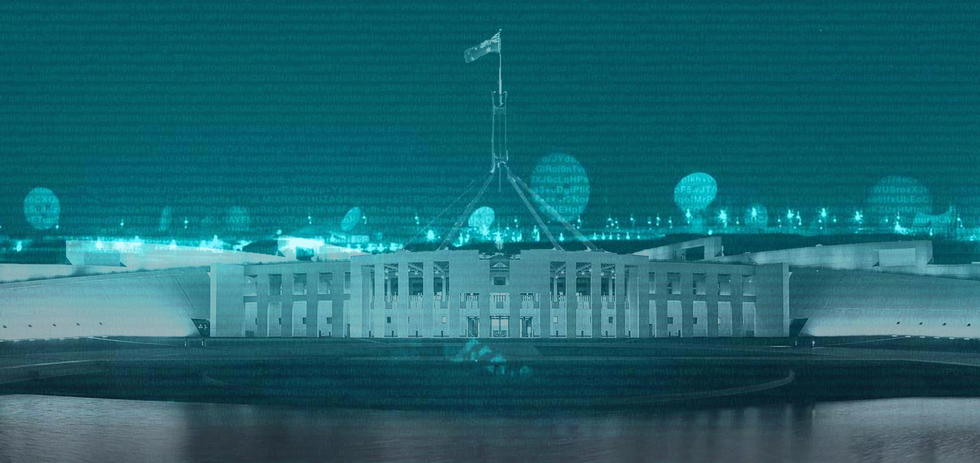The New South Wales Council for Civil Liberties is taking an unusual route in the fight to stop data retention, swapping out Twitter for the silver screen. Laura Poitras’ Oscar-nominated documentary CITIZENFOUR chronicles a series of Hong Kong-based meetings between Poitras, then Guardian columnist Glenn Greenwald, and Edward Snowden, the NSA whistleblower whose efforts to disclose information concerning mass surveillance on the part of the American government created a global media event and jolted public consciousness about online privacy. The initial coverage of these leaks won Poitras, Greenwald and others involved a Pulitzer Prize for Public Service.
The NSWCCL aims to screen the film for politicians and media in Canberra, raising money to rent a viewing space in Parliament House for a February 9 screening, presented in conjunction with Madman Entertainment and Electronic Frontiers Australia. The NSWCCL have announced that “key influential politicians across the political spectrum” are interested to see the film, a positive development considering the approach the current Attorney-General, George Brandis, has taken with regards to Snowden. In April last year Brandis famously branded Snowden a “traitor” and, just yesterday, his department cited Snowden’s leaks as a major impetus for pushing through the proposed data retention laws.
We reached out to the Vice President of the NSWCCL, Oscar Coleman, who told us that “the screening isn’t just aimed at politicians, but also staffers and members of the press gallery. This event is about more than changing MP’s minds, it’s about starting a conversation.” When asked whether he thinks the film could change perceptions regarding Snowden as a whistleblower, Coleman said that “hopefully the film will humanise him, so he won’t just be written off as a traitor, and that people will hear what he, and if not him, what the journalists involved, had to say about privacy and data retention”.
In addition to this NSWCCL screening, Greens Senator Scott Ludlam is presenting the film to the public at two free screenings, one in Sydney and one in Melbourne. Information about those screenings, which are also supported by Madman Entertainment, Electronic Frontiers Australia and the NSW Council of Civil Liberties, in addition to Liberty Victoria, can be found here.
CITIZENFOUR is the third film in an informal trilogy for Poitras, following 2006’s My Country, My Country, which looked at Iraq under US occupation, and 2010’s The Oath, which looked at two men whose lives were at one point connected with Osama Bin Laden and the events of 9/11. In an amusing touch, the soundtrack for the entirety of CITIZENFOUR is comprised of excerpts from the Nine Inch Nails instrumental album Ghosts I-IV, which was uploaded by the band for free online in 2008 and still exists under a Creative Commons Attribution Non-Commercial Share Alike license.1
Luke Goodsell was able to see the film as part of his New York Film Festival coverage for us last year, and noted that “the documentary is there—or convincingly purports to be, anyway—as Snowden paces his Hong Kong hotel room like a fugitive, pondering his next move while the international media frenzy waits to explode. It’s fascinating, unnerving stuff.”
Another documentary about Snowden, called Snowden’s Great Escape and made in Denmark, was put online a few days ago, and follows Snowden’s journey from Hong Kong. You can watch that here.2
The NSWCCL is aiming to raise $2500 for the screening, with an additional $2500 goal to have a post-screening event for policymakers and media. You can donate to that effort on their website here.
If you have a Fandor account, you can view both The Oath and My Country, My Country on their site.
The header image was created using promotional art for CITIZENFOUR overlaid with JJ Harrison’s image of Parliament House, here altered and used under a CC BY-SA 3.0 license.
